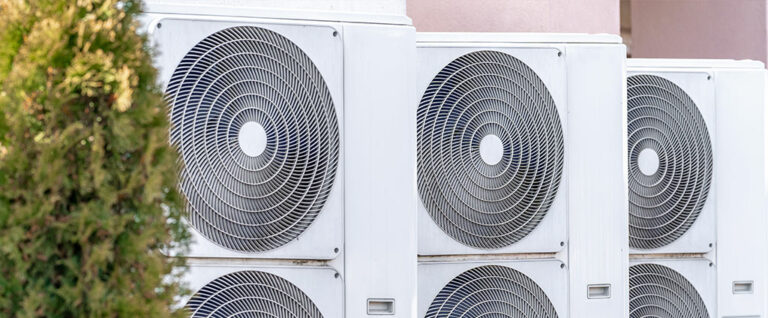
What Is Electrification, And What Does It Have To Do With HVAC?
The negative impact of human activity on the environment has become more apparent over the past few decades.
Climate change, pollution, and deforestation are just a few of the pressing environmental issues that the world is facing today.
Because of this crisis, there is an urgent need for individuals, businesses, industrial sectors, and governments to adopt cleaner and more sustainable ways to generate electricity.
One of the most promising tools for achieving this goal is electrification.
This blog post will examine electrification, its importance, and how it relates to HVAC. We’ll also explore the benefits and process of installing an energy efficient HVAC system in your building.
What is electrification?
Electrification refers to transitioning from technologies that rely on fossil fuels, such as coal, oil, and natural gas, to those that are powered by electricity.
The primary goal of electricity-generated technologies is to reduce greenhouse gas emissions that contribute to climate change and air pollution.
Along with reducing pollution, electrification also improves energy efficiency and promotes the use of cleaner, renewable sources of electricity.
By embracing electrification, we can move towards a more sustainable future that prioritizes the health of our planet and its inhabitants.
Why is electrification so important?
Electrification is essential for our transition toward a cleaner and more sustainable future.
It holds significant potential to reduce our overall energy demand by using electric technologies. These technologies are known to be much more efficient than their fossil fuel-based alternatives.
By embracing electrification, we can significantly reduce our carbon footprints and switch to renewable energy sources like solar and wind power.
The benefits of electrification can also lead to significant cost savings. Electric technologies are becoming increasingly cost-competitive, especially as renewable energy costs decrease.
Using electric vehicles, for example, can significantly save fuel costs and maintenance expenses over time.
At the same time, electrification can reduce water pollution by reducing the need to transport fossil fuels, which can lead to oil spills and other environmental hazards.
Electrification can reduce noise pollution, as electric-powered vehicles and HVAC systems are generally quieter than their fossil fuel-powered counterparts.
There’s no doubt that electrification plays a pivotal role in a world where environmental consciousness is becoming increasingly important.
What does electrification have to do with HVAC systems?
When it comes to modernizing HVAC systems, electrification is crucial.
By shifting from burning fossil fuels to an energy-efficient HVAC system for heating and cooling, your building can significantly reduce its energy consumption and greenhouse gas emissions.
This is particularly important given that buildings account for about 40% of the energy consumption in the US.
Alternative technologies like heat pumps, variable refrigerant flow (VRF) systems, and other electric-based solutions provide the same heating and cooling capabilities. Yet they’re more energy-efficient than traditional boilers or split systems.
At General & Mechanical Services (GMS), we provide high-efficiency HVAC and mechanical solutions that use electrification to maximize energy savings and reduce environmental impact.
We also work with local utility companies to provide rebates on system renovations wherever possible. This makes the switch to electrification more accessible and cost-effective for our clients.
How to install an HVAC system and reduce your carbon footprint
At GMS, we have extensive experience implementing electrification solutions for commercial and government buildings.
All-electric heat pumps are one of the most popular technologies worldwide for decarbonizing heating and cooling.
Incorporating VRF heat pumps and heat-recovery systems into projects can significantly reduce your carbon footprint and overall building costs.
VRF heat pumps work by taking heat from the outdoor environment, such as the air or nearby water source, and using it to heat different zones within a building.
The outdoor unit of the heat pump extracts heat from the environment. It then introduces it to indoor units, distributing the heat to the desired areas.
During cooling, the process is reversed as the indoor unit transfers heat from the zones to the outside unit, which rejects it.
Building owners, engineers, architects, and mechanical design companies like GMS can tackle challenges associated with decarbonizing the electric grid using VRF heat pumps and heat-recovery systems.
By using these systems, we can adhere to emerging building codes, standards, and legislation while reducing carbon dioxide emissions.
Federal and state standards, tax credits, and utility rebates are available to accelerate the adoption of energy-efficient alternatives to fossil fuel-burning systems.
At GMS, we have used these cutting-edge technologies in multiple projects across Maryland, Virginia, and the DC area.
What are the benefits of HVAC systems?
GMS’ HVAC systems offer several valuable benefits for your building, including:
- Lower energy costs: Save a significant amount on your energy costs by replacing inefficient systems with high-efficient electrified solutions.
- Reduced carbon emissions: Enjoy renewable electricity that substantially reduces your building’s carbon footprint.
- Improved indoor air quality: Remove pollutants and improve indoor air quality with advanced filtration technology that creates a healthier and more comfortable environment for occupants.
- Improved reliability: Reduce downtime and operational costs with a reliable design crafted to require less maintenance.
- Increased productivity: Maintain a consistent temperature and humidity level to help reduce fatigue and improve cognitive performance, resulting in a more productive work environment.
Choose General & Mechanical Services (GMS)
At GMS, we’ve been designing, building, and maintaining mission-critical HVAC, mechanical, plumbing, and electrical systems since 1998.
We pride ourselves on delivering innovative, sustainable solutions designed to optimize your building’s energy performance while reducing energy costs and improving indoor air quality.
Our team of experts is dedicated to working closely with you to take on board your unique needs so that we can design solutions tailored to your building’s specifications.
If you would like to learn more about our services or discuss your project needs in more detail, please don’t hesitate to contact us today.

about the author
Greg Lilly, President and Owner of General & Mechanical Services, LLC
Greg Lilly is a Johns Hopkins University graduate with over 30 years of experience in mechanical services focused on providing energy efficient solutions and strategies within facilities, central plants and data centers.

